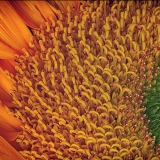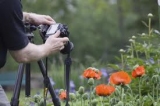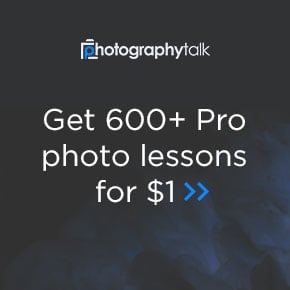- Forum
- General Discussion | Introductions | Off Topic Forum
- Photography General Discussion
- Low light performance more about the sensor or lens?
Low light performance more about the sensor or lens?
-
 Topic Author
Topic Author
- Crammer
- Photography Hooked
-
- Nikon D810 & D90
- Followers: 139
- Posts: 940
-
Points:
7799
Post #439839
-

- Screamin Scott
- Moderator
-
- Nikon D610, Nikon D7100, Nikon D300, Olympus OMD E-M5 MarkII, Olympus OM-D E-M10, Olympus Pen E-P3 + film SLR's
- Followers: 1384
- Posts: 6855
-
Points:
39981
Post #439841
-

- tganiats
- Lone Wolf
-
- Nikon D800
- Followers: 99
- Posts: 218
-
Points:
130
Post #439851
The lens is also complicated. One easy part of the lens is the maximum aperture. A faster lens (small f/stop number) will do better in low light (if that aperture is used). However, something I learned recently (and I'd love others to confirm) is that even at a fixed aperture, some lenses will transmit more light than others. Is that right?
-

- Screamin Scott
- Moderator
-
- Nikon D610, Nikon D7100, Nikon D300, Olympus OMD E-M5 MarkII, Olympus OM-D E-M10, Olympus Pen E-P3 + film SLR's
- Followers: 1384
- Posts: 6855
-
Points:
39981
Post #439854
en.wikipedia.org/wiki/F-number
-
 Topic Author
Topic Author
- Crammer
- Photography Hooked
-
- Nikon D810 & D90
- Followers: 139
- Posts: 940
-
Points:
7799
Post #439862
Screamin Scott wrote: Both will have an effect. In film days, it was about faster (and grainier results) film coupled with faster lenses. Now , with digital, it's about more sensitive sensors with faster lenses. Either a fast lens or a more sensitive sensor will get you better low light images, both are equally important...
Yeah the grain is what would kill you unless you were into hypering film, or buying it. And then not all films would cook really well for doing that. So hence fast glass, is and always will be king in the area of giving you more light to work with. But the beauty of the digital age is that you can shoot with much faster shutter speeds in lower light even with the lens stopped down to a greater extent. So the lens is not the primary performer for low light for some camera models. Though having fast glass does give you an advantage speed wise for the shutter end.
The larger the sensor does not mean that it is better at low light, it only means it has more surface are to gather what it sees, and more room for photo sites depending on size. The larger the photo site the more photos it can collect from any available light. But if you use too large of a photo site the resolution drops, but you can shoot in essentially the dark. Now they are going back to pixel packing, and losing some of it, but not as much as they have gained. It is a win for us in that we are now able to do thing we only dreamed we could do in the old days. I fell lucky to have seen it all change.
-
 Topic Author
Topic Author
- Crammer
- Photography Hooked
-
- Nikon D810 & D90
- Followers: 139
- Posts: 940
-
Points:
7799
-

- ThatNikonGuy
- Master of the Lens
-
- Nikon D810 & D300
- Followers: 299
- Posts: 1888
-
Points:
16120
Post #440065
-

- Stealthy Ninja
- Moderator
-
- Fuji X stuff and a 1DsIII for some reason
- Followers: 982
- Posts: 16300
-
Points:
6837
- Forum
- General Discussion | Introductions | Off Topic Forum
- Photography General Discussion
- Low light performance more about the sensor or lens?
Latest Reviews
The Canon EOS R100 is an entry-level mirrorless camera introduced in 2023. But just because it’s an entry-level camera doesn’t mean it’s a bare-bones camera. Find out why in this review!
Nikon’s retro-looking Nikon Zfc is anything but retro. Under its classic body is a host of features and amenities that make it a worthwhile compact mirrorless camera for 2024.
The Canon EOS R50 is one of the newest R-system cameras from Canon. Is it worth your money? Find out all the details you need to know in this comprehensive review.
The Sony FE 70-200mm f/2.8 GM OSS II is Sony’s flagship mirrorless zoom lens. As such, it’s loaded with features and has a top-shelf build quality that makes it a top pick!
Forum Top Posters
-
1TCav 5 posts
-
2Randy Shaw 4 posts
-
3Prago 4 posts
-
4Foggy 4 posts
-
5Razky 4 posts
-
6CharleyL 3 posts
-
7db3348 3 posts
-
8CaptNemo 3 posts
-
9Sandy Smith Photos 3 posts
-
10Steve Zahra 2 posts
Latest Articles
The Canon EOS R100 is an entry-level mirrorless camera introduced in 2023. But just because it’s an entry-level camera doesn’t mean it’s a bare-bones camera. Find out why in this review!
Are you ready to upgrade your camera? Before buying new, you might consider the value of purchasing used gear to save money.
The Olympus OM-D E-M10 Mark IV is a micro four thirds camera released in 2020. It’s an entry-level system along with the OM-D E-M5 Mark III. Use this guide to determine which one is best for you!
Blue hour photography might not be as well known as golden hour photography, but it is every bit as good a time to create epic images of landscapes. Learn how in this quick tutorial!
Nikon’s retro-looking Nikon Zfc is anything but retro. Under its classic body is a host of features and amenities that make it a worthwhile compact mirrorless camera for 2024.
Moving from taking snapshots of your dog to creating beautiful images doesn’t have to be that difficult! Use the tips outlined in this dog photography guide, and you’ll get better results in no time.
Acrylic print photos are a beautiful way to display your favorite images. But they don’t come without some questions. Get all the answers you need about this medium in this guide!
Where do you get your landscape photography inspiration? Is it from masters like Ansel Adams? Or perhaps viewing art from other genres? We’ve got these and a few other sources for you to check out!

















